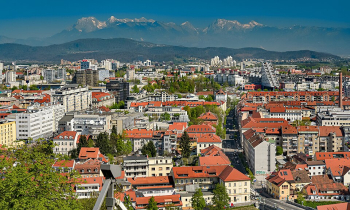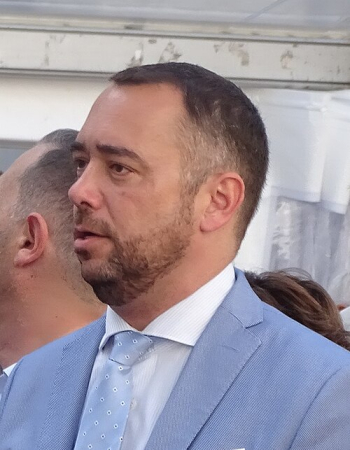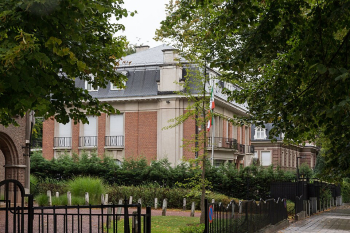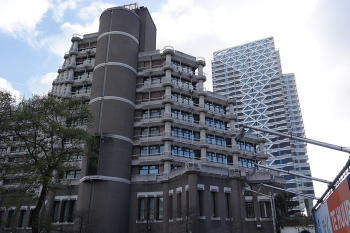
Angry citizens have swelled the streets of cities across the globe this year, pushing back against a disparate range of policies but often expressing a common grievance -- the
establishment's failure to heed their demands for a more equitable future.
While street protests are nothing new, experts say the intense 2019 flare-ups reflect a growing sentiment that the social contract between governments and citizens has broken down, with voters paying the price but unable to affect meaningful change.
"What unites the protests is that all are responding to a sense of exclusion, pessimism about the future, and a feeling of having lost control to unaccountable elites," said Jake Werner, a historian at the University of Chicago.
It also produced an acute sense of unfairness, in particular among young people who see their prospects of earning a decent living slipping away with every price hike or benefit cut.
"What was previously experienced as proper or natural is now increasingly experienced as a form of domination and injustice," Werner told AFP.
As a result, it often takes only a small move to spark a protest -- in Chile it was a metro ticket increase, in Iran and France it was higher fuel costs -- that balloons into a wider revolt demanding better living standards.
Elsewhere, like in Hong Kong and Algeria, calls for greater political freedom have become a potent rallying force.
"The belief in democracy's capacity to change people's lives is undoubtedly eroding," said Erik Neveu, a sociologist at the Sciences Po political science university in Rennes, western France.
- 'Rejection of neo-liberalism' -
For Olivier Fillieule, a specialist in social movements at the University of Lausanne in Switzerland, this year's protests built on the same dynamics which produced movements as diverse as Occupy Wall Street, the Arab Spring, or the Russian opposition to President Vladimir Putin.
"Don't forget that Time magazine named 'the Protester' its person of the year in 2011," Fillieule said.
"The rejection of neo-liberalism is the main driver of most of these movements," he said, noting that "the state's abdication of some of its responsibilities leaves people alone against the market."
The impression that big companies and the wealthy seem to get a free pass -- despite calls to force multinationals to pay more taxes -- only further inflames the sense that the game is rigged.
"Society is fed up with paying and paying. They've squeezed us like a lemon," said Marcela Paz, a 51-year-old teacher, during a protest in Santiago, Chile, in October.
And if the traditional rungs for climbing the social ladder are out of reach, experts say more people will feel that protests, and potentially violence, are the only recourse.
In France, for example, the "yellow vest" anger over high costs of living quickly spiralled into rioting and clashes with police -- and eventually forced the government to pledge billions of euros in tax cuts and wage boosts.
Then in December French unions backed by the "yellow vests" called a nationwide strike to protest against pension reforms, which brought the country to a virtual standstill for several days.
- 'Unaccountable' -
Experts say the multitude of long-running protests, some of which have carried on for weeks or even months at a time, could provide mutual energy while also inspiring new movements.
"It is clear that protests and other forms of movement activity have been very much on the rise in recent years, and perhaps this year in particular," said Doug McAdam, a sociologist at Stanford University in California.
And reflecting the distrust of top-down democracy, most movements have rejected leadership, embracing instead a "horizontal" organisation facilitated by social media or as in Hong Kong by secure message apps.
In some countries like Iran and Egypt, the governments have tried to curtain the social movements by cutting off the internet, but without much success in the long term.
These are not only "Facebook revolutions", says Geoffrey Pleyers, a sociology professor in Belgium and France. These are profound movements where young people often take the lead, but then become intergenerational, he adds.
The "horizontal" organisation makes it harder for authorities to single out someone to negotiate with, or to arrest, in a bid to quell protesters' anger.
"This demand of dignity is central in the movement since 2011," Fillieule said.
"The question of structuring a movement, and how it will be represented, comes second."
Even if governments give in to certain demands, they risk facing more protests unless they address the anger that sent people to the streets in the first place.
"It's not that the nature of authority changed -- elites are just as unaccountable today as they were ten years ago," Werner said.
"What changed is that elite unaccountability has been exposed, because popular forces are no longer aligned with elites as they once were."afp
















